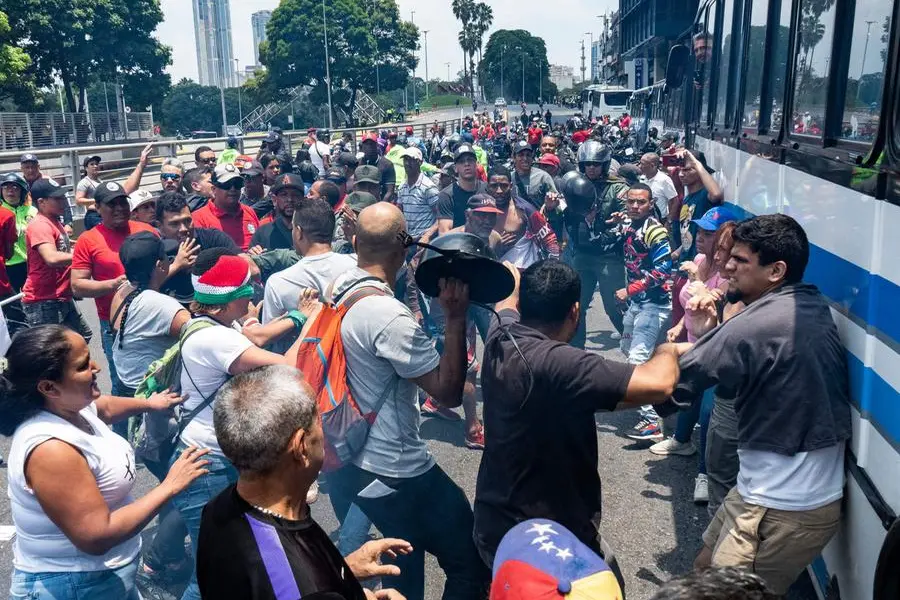PHOTO
Venezuelan President Nicolas Maduro on Wednesday announced an increase in state bonuses for public sector workers but kept the minimum wage frozen at the equivalent of less than $4 a month.
"Today, I have decided to raise the minimum comprehensive income of workers to $130," the leftist president said at a meeting with oil industry workers in Caracas after participating in a May Day march.
The "comprehensive minimum income" comprises the minimum wage of $3.50, plus a $40 food bonus and an "Economic War Bonus" that will be raised from $60 to $90, ruling party lawmaker and former labor minister Francisco Torrealba said after the president did not give specifics.
The "Economic War Bonus" was created to counteract the effect of US sanctions against Venezuela and only applies to the 5.5 million public sector workers in the country of 30 million.
The increase has no impact on benefits such as other bonuses and unemployment benefits or pensions, which are pegged to the formal minimum wage that last increased in 2022 when it was equivalent to around $30 -- a sum now worth about $3.50 due to the devaluation of the bolivar.
Union leaders have questioned this wage "bonus" policy, but Maduro justifies it due to the impact of US sanctions.
The Confederation of Venezuelan Workers, which is critical of Maduro, also demonstrated Wednesday in Caracas demanding a minimum wage of at least $200.
The average cost of food for a family exceeds $500 a month.
Venezuela has been hit in recent years by chronic inflation -- Maduro projected a 60 percent rise in prices for this year -- and by the constant depreciation of the bolivar, displaced by an informal dollarization that prevails in the majority of commercial transactions.
Venezuela heads to the polls for presidential elections on July 28, with Maduro widely expected to seek reelection and his main opposition challenger disqualified from running.





















